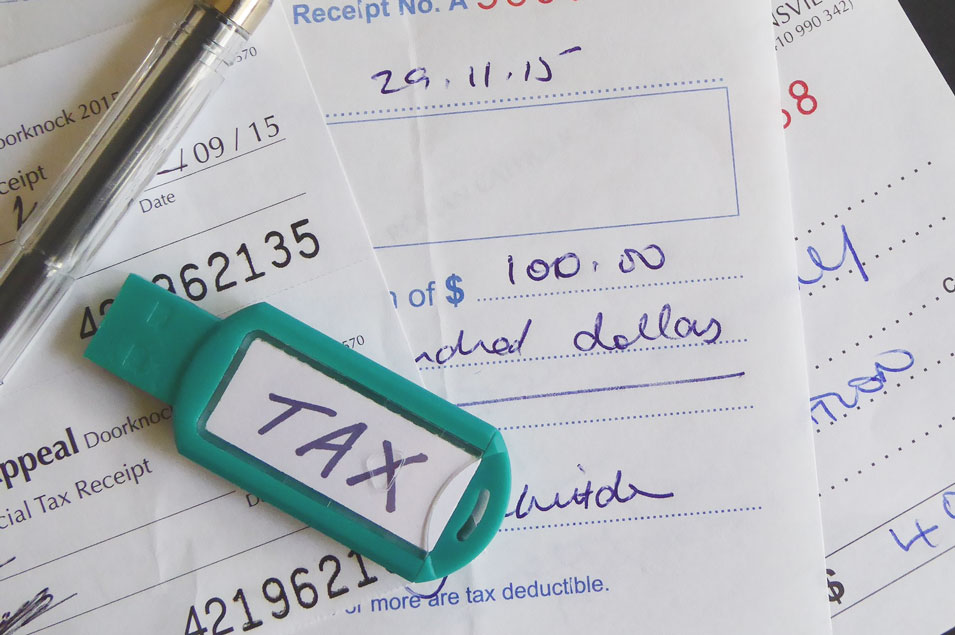Do I Have to Pay Taxes on My Social Security Disability Benefits?
Getting approved for Social Security disability benefits can help people with disabilities feel a sense of security again, knowing that they can depend on receiving monthly payments. However, disability recipients may lose that sense of security when they start wondering about whether or not their payments will be tax deductible. Have they gone through the […]

August 11, 2017
Getting approved for Social Security disability benefits can help people with disabilities feel a sense of security again, knowing that they can depend on receiving monthly payments.
However, disability recipients may lose that sense of security when they start wondering about whether or not their payments will be tax deductible. Have they gone through the trouble of getting approved just to see their benefits diminished by government taxes?
The good news is that most disability benefit recipients don’t have to pay federal or state taxes on their benefits. However, as per usual with Social Security, there are always some exceptions.
Every case is different. We highly encourage disability benefit recipients to consult with tax professionals or use reputable tax preparation software to determine how their benefits may or may not be taxed.
Keep in mind that even if your benefits are not eligible for taxation, you are still required to file your tax return.
Federal Taxes for Single DIB Recipients

Virtually no one receiving supplemental security income (SSI) has to pay federal taxes on their benefits. However, that’s not the case for people who receive disability insurance benefits (DIB), also known as Social Security disability insurance (SSDI).
About one-third of all DIB recipients have to pay some form of federal income tax on their DIB payments. Your benefits are typically only taxed if you or your spouse has an additional form of income besides DIB.
If you file your taxes as an individual, you have to make more than $25,000 in annual income in order for your benefits to be subject to taxes. Your annual income includes 50 percent of your DIB payments and any wages you earn, as well as the usual resources that the government counts as taxable income (interest on savings accounts, taxable pension payments, dividends on investments, passive income such as rent, etc.).
If you make more than $34,000 as a single individual, you may be subject to higher taxes on your DIB payments. This includes both a greater portion of your benefits being taxed as well as possibly paying a higher percentage of tax. For example, instead of paying 10 percent in tax on 50 percent of your disability benefits, you may pay 15 percent in tax on 60 percent of your disability benefits.
Federal Taxes for Married DIB Recipients

If you file jointly with a spouse, your combined income, including half of the DIB you receive, must be more than $32,000 in order for your benefits to be taxed. Your annual income is defined exactly the same as what it would be if you were filing as an individual, except you must also include your spouse’s wages and other forms of income as well, even if he or she doesn’t receive DIB payments.
If you and your spouse make more than $44,000 in annual income, you may be subject to higher taxes on your DIB payments in the same way you would if you made more than $34,000 as a single person. That means possibly a higher percentage taxed on more than 50 percent of your benefits.
If you file separately from your spouse, your benefits will be taxable regardless of your income.
Federal Taxes on Past-Due Benefits (Back Pay)

Because it can take so long to get approved for Social Security disability benefits, the Social Security Administration (SSA) may send you a lump sum check for all of the months you had to wait to get approved in which you should have been receiving benefits. This is referred to as past-due benefits, also known as back pay.
Your back pay may be substantial, sometimes resulting in thousands of dollars in benefits all at once.
But is your back pay subject to taxation? Yes.
However, because your back pay might be made up of years’ worth of past-due benefits, you have the option of applying the benefits earned over previous years to previous tax returns. Instead of making you amend previous tax returns, the IRS allows you to portion out the benefits over previous years on your current tax return.
State Taxes for DIB Recipients

Some states impose income taxes; some do not. Some states with income taxes exempt Social Security disability benefits from taxation; some do not.
Indiana has state income tax, but it does not tax Social Security disability benefits, both DIB and SSI. However, the following states do impose some form of tax on people who receive Social Security disability benefits:
- Connecticut
- Colorado
- Iowa
- Kansas
- Minnesota
- Missouri
- Montana
- Nebraska
- New Mexico
- North Dakota
- Rhode Island
- Utah
- Vermont
- West Virginia
However, even in these states, exceptions apply. You may still be exempt from state taxes for your Social Security disability benefits. Be sure to look up your state’s tax agency and/or contact a tax professional to understand what portion of your benefits might be subject to taxes in your state.
Help from an Indiana Disability Attorney
Before you can begin worrying about how taxes will affect your monthly payments or your back pay, you first have to get approved for Social Security disability benefits. An Indiana disability attorney can help. Call us today or contact us online for a free consultation. Be sure to download our free eBook, Eight Mistakes to Avoid When Filing for Social Security Disability Benefits, for more information.
Available 24/7
Free Case Review
You won’t pay any fees until we win your case.
It’s easy - you can: